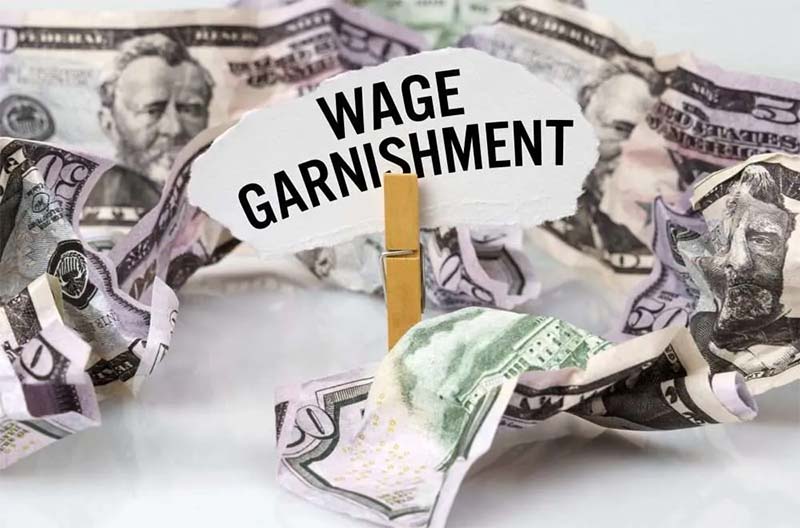What is a Student Loan Wage Garnishment?
Student loan wage garnishment in Michigan is a legal process in which a student loan lender can legally require an employer to withhold a portion of a borrower’s wages to repay their student loan debt.
This process is typically initiated when a borrower defaults on their student loans, and both federal and private student loan lenders can pursue wage garnishment as a means of collecting the debt.
In Michigan, some specific laws and regulations govern the process of student loan wage garnishment, including the maximum amount that can be garnished from a borrower’s wages and the requirement for the lender to notify the borrower before initiating garnishment.
How Does a Student Loan Wage Garnishment Work?
When a student loan goes into default, the loan servicer can initiate wage garnishment to collect the debt. Default occurs after the borrower fails to make payments for a period of time, usually 270 days for federal loans. Once the loan is in default, the loan servicer can request the employer to withhold a portion of the borrower’s wages to repay the debt.
To stop or appeal the wage garnishment, the borrower can negotiate payment arrangements with the collection agency. This may involve setting up a new repayment plan based on the borrower’s income. The borrower can request a hearing with the collection agency to present their case and explore alternatives to wage garnishment. Bankruptcy can also put a stop to wage garnishment or collection efforts.
Key actions to take when facing student loan wage garnishment include consolidating loans to make payments more manageable, making timely payments to avoid default, and appealing the garnishment if there are extenuating circumstances.

Difference Between Federal and Private Student Loan Wage Garnishment
Federal student loan wage garnishment occurs when the government deducts a portion of a borrower’s paycheck to repay their loan. The regulations for federal student loan wage garnishment are outlined in the Higher Education Act, which allows the government to garnish up to 15% of a borrower’s disposable income.
Defaulting on federal student loans can lead to wage garnishment after a borrower fails to make payments for 270 days, while the threshold for private student loans can vary by lender. To address the situation, borrowers with federal student loans can explore options such as:
- Applying for an income-driven repayment plan
- Consolidation
- Loan rehabilitation
Private student loan wage garnishment is the result of a court order obtained by the lender. Each state has its regulations regarding the percentage of income that can be garnished for private loans.
Borrowers with private student loans may have fewer options, but can try negotiating a new repayment plan with their lender to avoid wage garnishment. Borrowers must communicate with their loan servicers to find a solution before wage garnishment is implemented.
Wage Garnishment Laws in Michigan
In Michigan, to obtain a judgment from the court and initiate wage garnishment, a creditor must first file a lawsuit and obtain a judgment against the debtor.
Once the judgment is granted, the creditor can then request the court to issue an order for wage garnishment. There are two types of garnishments allowed in Michigan: periodic garnishment, where a portion of the debtor’s wages are withheld on a regular basis, and nonperiodic garnishment, where a lump sum of the debtor’s wages is withheld from a single paycheck.
Certain types of income, such as Social Security benefits, unemployment compensation, and child support payments, are exempt from garnishment in Michigan. The maximum amount that can be garnished from a paycheck is typically limited to 25% of the debtor’s disposable earnings or the amount by which the debtor’s weekly earnings exceed 30 times the federal minimum wage, whichever is lower. [1]

If you want to stop or reduce wage garnishment for your student loans, contact our experienced attorneys at Frego & Associates.
Our team can help you understand your options and navigate the process to potentially avoid or reduce wage garnishment. Contact us today for a consultation to discuss your student loan situation in Michigan.
Source:
[1] Fact Sheet #30: The Federal Wage Garnishment Law, Consumer Credit Protection Act’s Title III (CCPA). (n.d.). DOL. https://www.dol.gov/agencies/whd/fact-sheets/30-cppa




